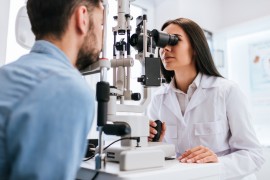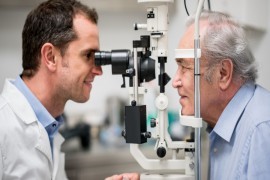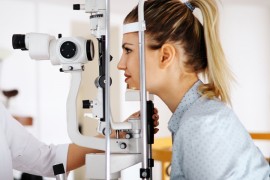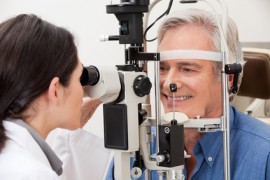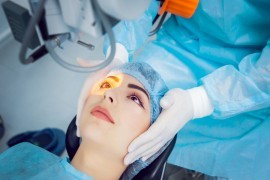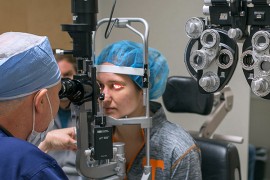Frequently Asked Questions
Cataract Surgery
1- When must I have cataract surgery?
It is usually from 0.5 vision, according to current ophthalmologist measurements (around 50 percent vision). Driving becomes difficult (you cannot pass medical exams for your driver's license) and reading the newspaper becomes difficult. It is also at this point that the benefits outweigh the drawbacks. A cataract can technically be removed if a patient has 90 percent vision, but the risks of losing vision outweigh the benefits of gaining it, so the surgical approach is different.
2-I was told I have "cataract onset," do I need the surgery? Is it necessary for me to conduct an additional checkup?
Cataract formation is a normal part of the aging process. We could almost say that everyone is born with the beginnings of a cataract. When you reach a certain age, it begins to limit your vision. Cataract principles are not operated on unless they limit vision, and revisions are typically performed every year until this occurs, which could be after 1 to 10 years... or never.
3-Is there anything I can do to improve the condition of my cataract without undergoing surgery?
No. The cataract develops at a different rate for each person. We are incapable of stopping it.
4-Will the surgery be more difficult later if I do not have it and my cataract worsens?
True, but with today's techniques, it's rare for a cataract to become so hard that it causes complications. Your ophthalmologist is the best option to consult with about your situation because some eye diseases necessitate earlier surgery.
Excimer Laser Surgery
1-May I stop wearing contact lenses?
It is necessary to stop wearing contact lenses for approximately one month prior to the procedure. A 15-day rest period is recommended before preoperative tests, depending on the type of lenses used (soft, toric or rigid gas permeable).
2-ARE BOTH EYES OPERATED AT THE SAME TIME?
Yes. For convenience, it is recommended that the surgery be performed on both eyes.
3- HOW LONG WILL THE SURGERY TAKE?
Although each eye takes about 5-10 minutes, the laser is only used for a few seconds.
4-DOES IT HURT? DO I NEED ANESTHESIA? WHAT HAPPENS IF I BLINK?
No. The procedure is not unpleasant. The anesthesia is topical (in the form of drops), similar to that used during the consultation to perform the preoperative tests. To keep the patient from closing his or her eyes during the procedure, we use separators that prevent blinking.
5- I AM OVER 40 YEARS OLD; CAN I HAVE EXCIMER LASER SURGERY?
Presbyopia, also known as tired eyes, begins around the age of 40. Distance vision is only corrected by laser refractive surgery. If you are nearsighted and over 40, you will almost certainly need near-sighted glasses after surgery. If you want to treat presbyopia or tired eyesight, your doctor may suggest a refractive lensectomy with a diffractive lens, which involves replacing your lens with an intraocular lens for far and near vision, or other options that will be discussed with you.
Smart Lense Surgeries
1-What kind of refractive error can this surgery fix?
Refractive surgery, also known as vision correction, refers to a group of ophthalmological surgical procedures aimed at correcting refractive defects such as myopia or high myopia, hyperopia, astigmatism, and presbyopia or tired eyesight in order to achieve good visual quality without the use of glasses or contact lenses.
2-Will the refractive surgery patient be able to see better than they did with their glasses or contact lenses?
The patient's vision will not be improved by refractive surgery. A person who has 60 percent vision with their best correction (glasses or contact lenses) may achieve 60 percent vision without correction after surgery, but they cannot improve beyond their own visual capacity.
3-Is there an upper age limit for candidates for refractive surgery?
No, there is a limit to the number of diopters that can be corrected. The clinical examination will be correlated with a rigorous evaluation of the complementary tests in each case in order to offer each patient the most appropriate options for their case, even if they are over the age limit.
4- Does pregnancy affect the outcome of surgery?
In general, there are no detectable changes. Several hormonal changes occur during pregnancy that, in some cases, can affect the eye and vision due to small changes in the cornea and tear film. These variations typically disappear after childbirth. Interventions are not recommended during pregnancy or for six months after delivery.


